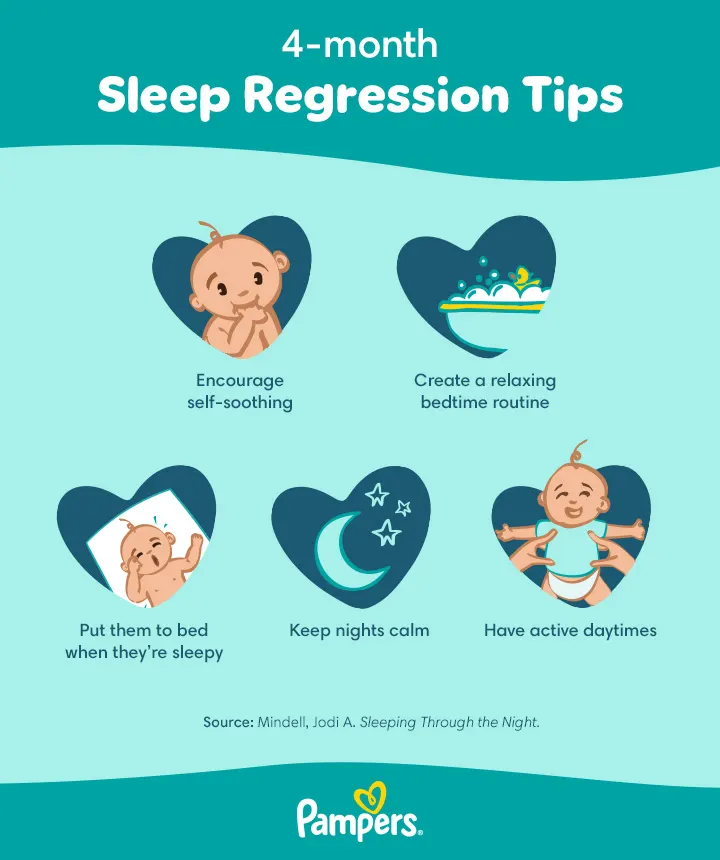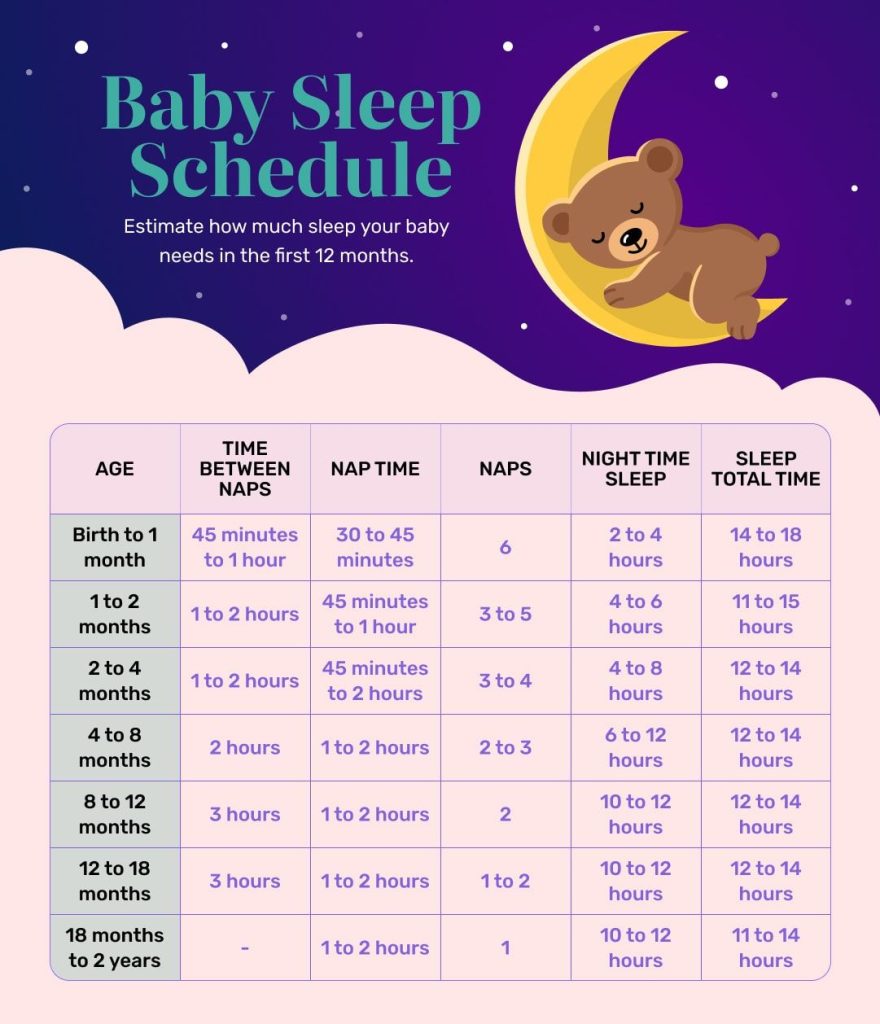Check the baby’s basic needs and establish a consistent bedtime routine. Consult a pediatrician if problems persist.
A baby who won’t sleep can be challenging for parents. Ensuring the baby’s basic needs are met is the first step. Hunger, a wet diaper, or discomfort can disrupt sleep. Establish a consistent bedtime routine to signal it’s time to sleep.
This might include a warm bath, a gentle massage, or reading a bedtime story. A calm and quiet environment also helps. Avoid stimulating activities before bedtime. If sleep issues continue, consult a pediatrician to rule out any underlying health problems. Understanding your baby’s sleep patterns and being patient is key to resolving sleep challenges.
Common Sleep Issues
Getting your baby to sleep can be challenging. Many parents face common sleep issues. Understanding these can help you find solutions.
Newborn Sleep Patterns
Newborns have unique sleep patterns. They often sleep in short bursts. This can be frustrating for new parents.
Newborns usually sleep for 14 to 17 hours a day. But they wake up frequently. Their sleep cycles last about 50 to 60 minutes.
During this time, they can easily wake up. Noise, hunger, or discomfort can disturb them. Understanding their sleep needs can help you plan better.
Here is a simple table to understand newborn sleep:
| Age | Total Sleep Time | Sleep Cycles |
|---|---|---|
| 0-3 Months | 14-17 hours | 50-60 minutes |
| 3-6 Months | 12-15 hours | 60-70 minutes |
Sleep Regression
Sleep regression is another common issue. It happens when a baby who used to sleep well suddenly wakes up more often.
This can occur at various stages. Common times include 4 months, 8 months, and 18 months.
During sleep regression, your baby may:
- Wake up more frequently
- Have trouble falling asleep
- Be more fussy
Sleep regression is temporary but challenging. Patience and consistency can help your baby get back to their routine.
Setting A Sleep Routine
Setting a sleep routine for your baby can be a game-changer. It helps babies understand when it’s time to sleep. Consistency is key. A well-structured routine can lead to better sleep for both baby and parents.
Bedtime Rituals
Creating calming bedtime rituals can signal to your baby that sleep is near. This could include:
- Bath Time: A warm bath can be soothing.
- Reading a Book: Choose a short, calming story.
- Lullabies: Soft music can help relax your baby.
- Gentle Rocking: Rocking your baby gently can be comforting.
These rituals should be consistent and predictable. Repeating the same activities in the same order helps your baby understand that bedtime is approaching.
Consistent Schedule
A consistent schedule is crucial for a baby’s sleep routine. Babies thrive on regularity. Ensure that naps and nighttime sleep occur at the same times each day.
| Time | Activity |
|---|---|
| 7:00 PM | Bath Time |
| 7:15 PM | Story Time |
| 7:30 PM | Lullaby |
| 7:45 PM | Bedtime |
Keep the room dark and quiet at bedtime. Use a nightlight if needed. Consistent sleep times help regulate your baby’s internal clock.
In summary, setting a sleep routine involves bedtime rituals and a consistent schedule. Both elements together can help your baby get the rest they need.
Creating A Sleep-friendly Environment
Struggling with a baby that won’t sleep can be exhausting. One crucial step is creating a sleep-friendly environment. A peaceful and comfortable setting helps your baby relax and drift off to sleep. Below, we explore key aspects of crafting this ideal environment.
Ideal Room Conditions
The baby’s room should have the right conditions for sleep. Ensure the room temperature stays between 68-72°F (20-22°C). This range is comfortable and safe for your baby.
Use blackout curtains to keep the room dark. Babies sleep better in a dark room. If complete darkness is too scary, use a small nightlight.
White noise machines can also help. They mask other sounds and create a soothing background noise. Keep the noise level low to protect your baby’s hearing.
Comfort Items
Comfort items can make a big difference. A soft, snug sleep sack can help your baby feel secure. Avoid loose blankets as they can be a hazard.
Using a familiar stuffed animal or lovey can provide comfort. Ensure these items are safe and suitable for your baby’s age.
Place your baby on a firm, flat mattress. A well-fitted crib sheet adds to the comfort. Avoid using pillows or heavy blankets in the crib.
Below is a table summarizing ideal room conditions and comfort items:
| Aspect | Details |
|---|---|
| Room Temperature | 68-72°F (20-22°C) |
| Lighting | Blackout curtains, small nightlight |
| Noise | White noise machine |
| Sleep Sack | Soft, snug |
| Comfort Items | Safe stuffed animal or lovey |
| Crib Setup | Firm mattress, well-fitted crib sheet |
Creating a sleep-friendly environment can make bedtime easier. Follow these tips to help your baby sleep better.

Credit: www.whattoexpect.com
Feeding And Sleep
Feeding and sleep are closely linked when it comes to babies. Understanding how feeding affects your baby’s sleep can help both of you rest better. In this section, we’ll cover night feedings and hunger signs.
Night Feedings
Babies often wake up at night because they are hungry. Night feedings are common, especially for newborns. It’s important to make these feedings calm and quiet. Keep the lights dim and avoid talking too much. This helps your baby understand that night is for sleeping.
Ensure your baby gets enough milk during the day. This can reduce the number of night feedings. Some babies need night feedings for comfort, not just hunger. Pay attention to your baby’s cues.
Hunger Signs
Recognizing hunger signs can help you feed your baby before they get too upset. Common hunger signs include:
- Rooting, or turning their head towards your hand
- Smacking lips or sucking on hands
- Crying, which is a late hunger sign
Feeding your baby when they show early hunger signs can make night feedings smoother. This helps your baby fall back asleep more easily.
Creating a feeding schedule can also help. Note when your baby is most hungry. Try to feed them before they get too fussy.
| Age | Number of Night Feedings |
|---|---|
| Newborn (0-3 months) | 2-3 times |
| 3-6 months | 1-2 times |
| 6-12 months | 0-1 time |
Understanding your baby’s hunger patterns can make night feedings less stressful. This can improve sleep for both you and your baby.
Handling Night Wakings
Night wakings can be challenging for both babies and parents. Understanding how to manage these disruptions can help everyone get better sleep. Below, we’ll explore some effective strategies for handling night wakings.
Self-soothing Techniques
Teaching your baby to self-soothe is crucial. Babies who can self-soothe often fall back asleep on their own.
- Offer a comfort object: A small blanket or soft toy can help.
- White noise: A consistent sound can make your baby feel safe.
- Gentle patting: Softly pat your baby’s back to help them relax.
When To Intervene
Sometimes, your baby may need your help. Knowing when to intervene can make a big difference.
- Check for discomfort: Ensure your baby isn’t hungry or in pain.
- Short reassurance: Offer brief comfort, then leave the room.
- Consistent routine: Stick to a bedtime routine to reduce night wakings.

Credit: www.momjunction.com
Dealing With Sleep Regressions
Sleep regressions can be tough for parents and babies. These phases disrupt your baby’s sleep patterns. They typically occur during growth spurts or developmental milestones. Understanding and dealing with sleep regressions can make the process easier for everyone.
Identifying Regressions
Sleep regressions usually happen around specific ages. Common ages are 4 months, 8-10 months, and 18 months. Signs of a sleep regression include:
- Frequent night wakings
- Shorter naps
- Difficulty falling asleep
- Increased fussiness
These changes often last for 2 to 6 weeks. Knowing the signs can help you prepare for these challenging periods.
Coping Strategies
Here are some strategies to help you cope with sleep regressions:
- Stick to a routine: Consistency helps your baby feel secure. Follow the same bedtime routine every night.
- Create a calm environment: Dim the lights and reduce noise. This helps signal bedtime.
- Offer comfort: Comfort your baby without creating sleep associations. Patting or shushing can help.
- Adjust naps: Ensure your baby gets the right amount of daytime sleep. Too little or too much can affect nighttime sleep.
- Be patient: Regressions are temporary. Your baby’s sleep will improve with time.
Understanding and managing sleep regressions can make this phase smoother. Stay calm and consistent, and your baby will return to better sleep patterns.
Parental Self-care
When your baby won’t sleep, it can be exhausting. It is crucial to prioritize parental self-care. Taking care of yourself helps you to care for your baby better. Here are some strategies to help manage your exhaustion and build strong support systems.
Managing Exhaustion
Sleep deprivation can affect your mood and energy levels. Here are some tips to manage your exhaustion:
- Nap when your baby naps: Even short naps can help you recharge.
- Share nighttime duties: Take turns with your partner for night feedings.
- Stay hydrated: Drinking water helps maintain your energy levels.
- Healthy snacks: Eat nutritious snacks to keep your energy up.
Support Systems
Building a strong support system is essential. Here are some ways to find support:
- Family and friends: Ask for help from trusted family members and friends.
- Join a parenting group: Connect with other parents who understand your struggles.
- Professional help: Consult a pediatrician or sleep consultant for advice.
Remember, it’s okay to ask for help. You don’t have to do it all alone.

Credit: www.thispilgrimlife.com
When To Seek Professional Help
Sometimes, no matter what you do, your baby just won’t sleep. It can be incredibly frustrating. If your baby struggles with sleep consistently, it might be time to seek professional help. Knowing when to involve a specialist can make a huge difference in your baby’s sleep patterns and overall health.
Signs Of A Sleep Disorder
If your baby shows signs of a sleep disorder, don’t ignore them. Common signs include:
- Frequent night wakings
- Difficulty falling asleep
- Snoring or noisy breathing
- Excessive daytime sleepiness
- Unusual sleep behaviors
These symptoms might indicate a more serious issue. It’s better to consult a specialist early.
Consulting A Specialist
If you notice persistent sleep issues, consulting a specialist is crucial. A pediatric sleep specialist can offer targeted solutions.
Here are steps to take when consulting a specialist:
- Document your baby’s sleep patterns
- List any unusual behaviors
- Prepare questions about possible treatments
- Schedule an appointment with a pediatric sleep expert
Specialists can diagnose underlying conditions and recommend effective treatments. They may suggest behavioral therapies, sleep training methods, or medical interventions if necessary.
Seeking professional help ensures your baby gets the best care for their sleep issues. This helps your baby develop healthy sleep habits and improves their overall well-being.
Frequently Asked Questions
What Happens If Baby Refuses To Sleep?
Try establishing a consistent bedtime routine. Ensure the sleep environment is calm and quiet. Offer comfort and reassurance to your baby. If issues persist, consult a pediatrician.
Why Is My Baby Fighting Sleep?
Babies often fight sleep due to overtiredness, overstimulation, or discomfort. Establish a consistent bedtime routine. Ensure a calm, quiet environment. Check for hunger or dirty diapers.
What To Do When Baby Is Overtired But Won’t Sleep?
Swaddle your baby to provide comfort. Create a calm, dark environment. Use white noise to soothe. Establish a consistent bedtime routine. Offer a gentle rocking motion.
How Do I Deal With My Baby’s Lack Of Sleep?
Establish a consistent bedtime routine. Keep the sleep environment calm and quiet. Ensure your baby is comfortable. Avoid stimulating activities before bed. Consult a pediatrician if issues persist.
Why Won’t My Baby Sleep At Night?
Babies may struggle with sleep due to hunger, discomfort, or an inconsistent bedtime routine. Try soothing techniques.
Conclusion
Helping your baby sleep can be challenging, but solutions exist. Patience and consistency are key. Try different strategies and see what works best. Remember, every baby is unique. Seek support when needed and trust your instincts. With time, your baby will develop healthier sleep patterns.


